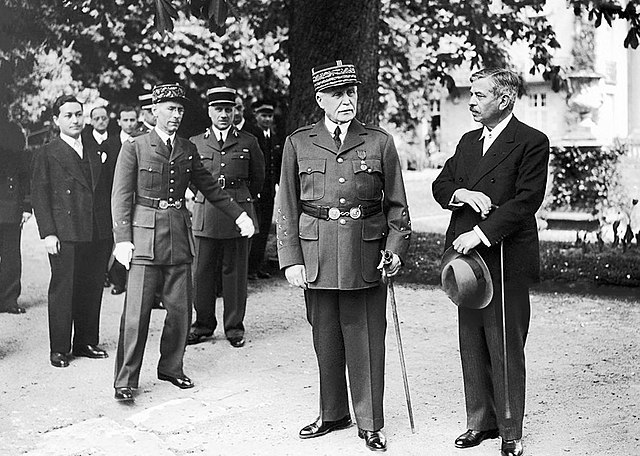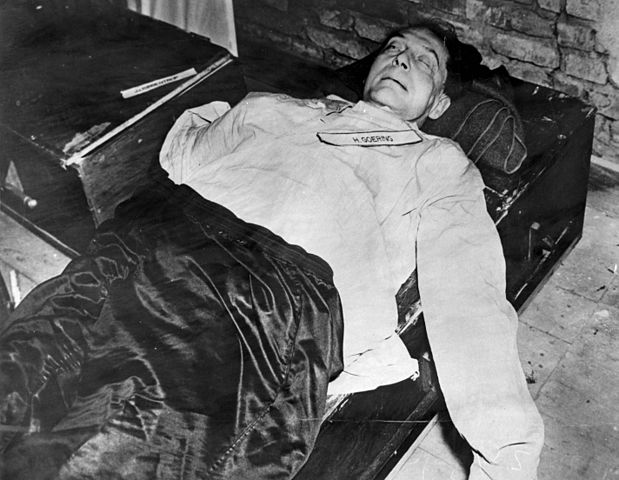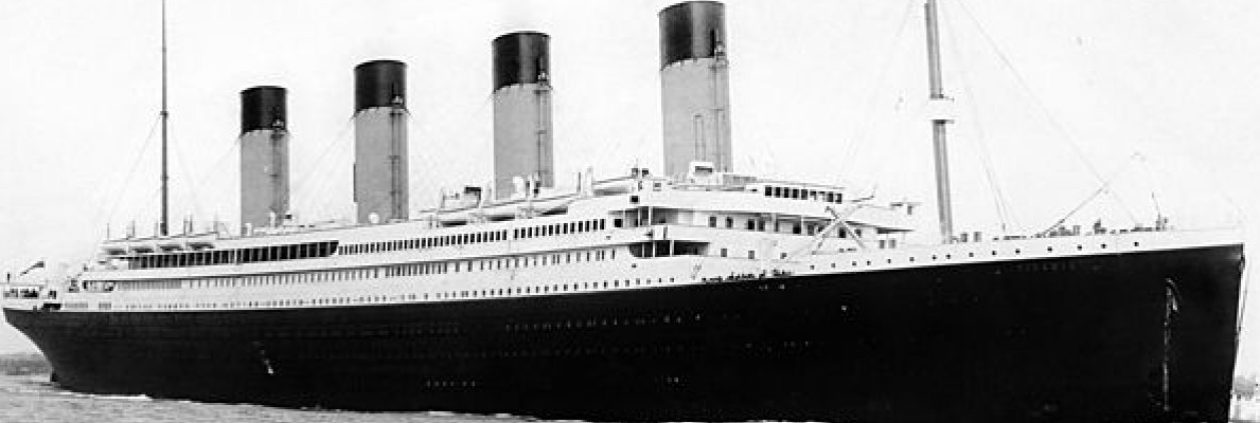Pierre Laval Executed (15 October 1945)

Public Doman via Wikimedia Commons
Following the French surrender to Germany in 1940, the Vichy state was created with Henri -Phillipe Pétain in charge and Pierre Laval as head of state. Laval began his political life as a pacifist but shifted to fascism in the 1930’s and anti-communist supporting France aligning with Italy rather than the Soviet Union. With war looming in 1939, he argued against war with Germany encouraging the antiwar faction to avoid sending troops into Germany when it invaded Poland in September 1939. His support of Germany got himself a high position in the new Vichy government.
Pétain disliked Laval and dismissed him after learning he was negotiating with Germany on his own. His friendship with Hitler though would bring him back into power becoming the real ruler of Vichy with Pétain as a figurehead. Under his rule, he carried out German directives rounding up and deporting Jews and imposing their draconian laws and policies. He fled to Germany after France was liberated in 1944. He had to flee again when Germany was defeated in 1945 to Spain. Franco deported him and hid out in Austria ultimately surrendering to American forces. Put on trial in France for his collaboration with Germany, he was found guilty of treason after a sensational trial that revealed how complicit he had been. Sentenced to death, he attempted suicide and failed. He was executed by firing squad on 15 October 1945.
Marshal Henri -Phillipe Pétain, revered for his service for France in World War I, was spared execution. Though convicted of treason and sentenced to death, the court asked that it not be carried out. President Charles de Gaulle commuted his sentence to life imprisonment. He was stripped of nearly all his military ranks and decorations but retained the rank of Marshal. He died in 1951.
Hermann Goering Commits Suicide (15 October 1946)

Public Domain
Hermann Goering was the highest member of Nazi Germany to be put on trial after World War II (except for Admiral Donitz who was appointed Reich President by Hitler in 1945). As Reichsmarschall, he held the highest military rank answerable only to Hitler and his designated successor. He commanded the Luftwaffe, was president of the Reichstag, prime minister of Prussia and many more titles too long to list here. Under his direction, concentration camps were created to imprison the regime’s enemies. Goering was greatly responsible for many of the anti-Jewish policies that were implemented particularly Kristallnacht where Jewish business were looted and nearly every synagogue was burned to the ground. He was known for his great art collection that was substantially increased as it was enlarged by art taken from captured countries.
Because of his high position and Hitler’s confidence in him, few dared to oppose him. Only SS head Heinrich Himmler was his only threat. Both ironically would try and fail to assume power in the last days before Germany fell in 1945. Goering’s stature had diminished over time with Hitler. He failed to deliver a fatal blow during the Battle of Britain (1940) and his Luftwaffe did not deter enemy bombings of Germany. His increased reliance on painkillers to overcome depression led to addiction causing problems for Hitler and others around him. After his dismissal (officially called a retirement for health reasons), he would later surrender himself to Allied forces rather than be taken by the Soviets. He would be tried in Nuremberg for various crimes against humanity.
As a result of his imprisonment, Goering’s addiction to painkillers ended allowing him to defend himself at the International Military Tribunal. He denied complicity in the more heinous acts done in concentration camps and the murdering of Jews, blaming them on Himmler. He tried to portray himself as a peacemaker and diplomat. Some testimony pointed out that opposing Hitler was impossible as it meant execution. However, when documents were introduced showing his complicity in Kristallnacht in 1938. Testimony also showed he knew about the execution of 50 airman who escaped but got recaptured as well as the extermination of Hungarian Jews.
He was found guilty of all charges on 30 September 1946 and sentenced to be hanged. He asked to be shot as a soldier but that was denied. Before he was to be executed on 16 October 1946, he committed suicide the night before taking a potassium cyanide capsule. Attempts to revive him failed but the mystery of how he obtained the poison would linger for years. A note written by him was found in 1967 stating he had hidden the capsule in a pomade container. In 2005 a former army private, Lee Stivers, who had served in the honor guard at the trial, came forward to say he had been given a pen by a German girl named Mona. According to his story, he had met her on the street one day and was impressed with him. Two male acquaintances of hers asked him to take secret messages to Goering using a fountain pen. He did this twice but on the third time he was told it contained a pill that was medication for Goering. He never saw the woman or the two men again and came forward to clear his conscience in the matter.
There are many that doubt Stivers story, but some believe it to be true. Aaron Breitbart of the Simon Wiesenthal Center in Los Angeles is quoted by the BBC as saying, “is crazy enough to be true.” In the end his body and the others executed were cremated and the ashes scattered over the Isar River.
Sources
Pierre Laval
- “Pierre Laval | French Prime Minister, Collaborator & Statesman,” Encyclopedia Britannica, last modified October 11, 2025, accessed October 14, 2025, https://www.britannica.com/biography/Pierre-Laval.
- “The Execution of Pierre Laval,” The Guardian, October 16, 2008, https://www.theguardian.com/commentisfree/2008/oct/16/fromthearchives.
- “Vichy Leader Executed for Treason | October 15, 1945 | HISTORY,” HISTORY, last modified May 27, 2025, accessed October 14, 2025, https://www.history.com/this-day-in-history/october-15/vichy-leader-executed-for-treason.
Hermann Goering
- Manvell et al., “Hermann Goring | Biography, History, Death, & Facts,” Encyclopedia Britannica, last modified October 11, 2025, accessed October 14, 2025, https://www.britannica.com/biography/Hermann-Goring.
- Deutsche Welle, “Secret Lifted Around Göring’s Suicide,” Dw.Com, February 9, 2005, https://www.dw.com/en/secret-lifted-around-g%C3%B6rings-suicide/a-1482751.
- “High-ranking Nazi Leader Hermann Göring Dies | October 15, 1946 | HISTORY,” HISTORY, last modified May 27, 2025, accessed October 14, 2025, https://www.history.com/this-day-in-history/october-15/hermann-goering-dies.
- “Hermann Göring | Holocaust Encyclopedia,” Holocaust Encyclopedia, https://encyclopedia.ushmm.org/content/en/article/hermann-goering.
Suggested Reading
Bross, Werner. Conversations with Göring Nuremberg 1946. Translated by Ralf Einem. Independently published, 2024.
Curtis, Michael. Verdict on Vichy: Power and Prejudice in the Vichy France Regime. Orion Media, 2004.
Gilbert, Martin. Kristallnacht: Prelude to Destruction. Harper Collins, 2007.
Manvell, Roger, and Heinrich Fraenkel. Goering: The Rise and Fall of the Notorious Nazi Leader. Skyhorse Publishing Inc., 2011.
Paxton, Robert O. Vichy France: Old Guard and New Order 1940-1944. Columbia University Press, 2001.
Persico, Joseph E. Nuremberg: Infamy on Trial Penguin, 1995
Shirer, William L. The Rise and Fall of the Third Reich: A History of Nazi Germany. Simon and Schuster, 2011.
Titanic News Channel is a participant in the Amazon Services LLC Associates Program, an affiliate advertising program designed to provide a means for sites to earn advertising fees by advertising and linking to Amazon.com.
